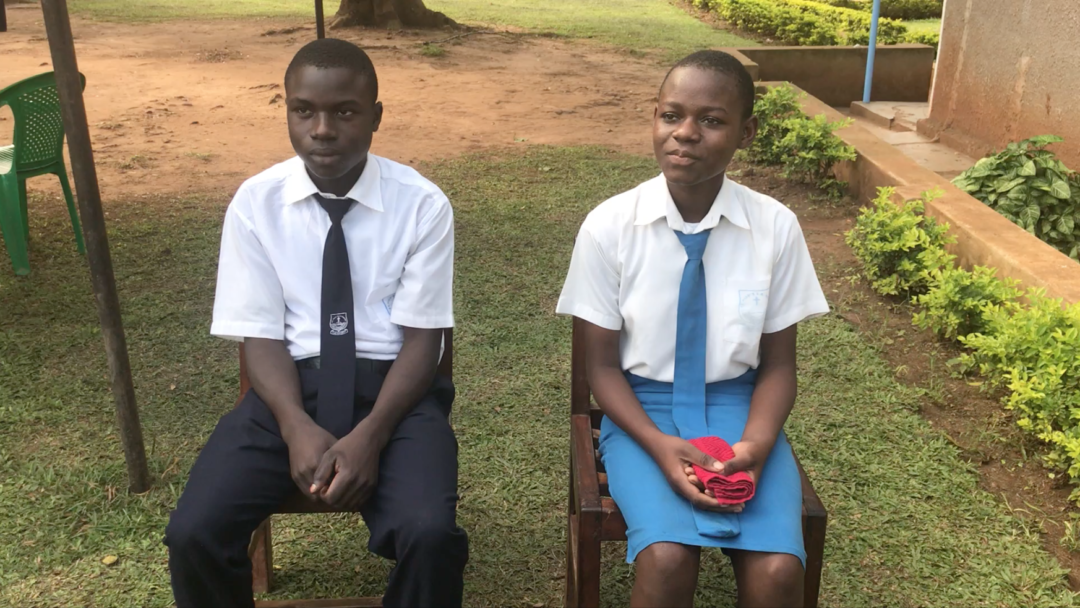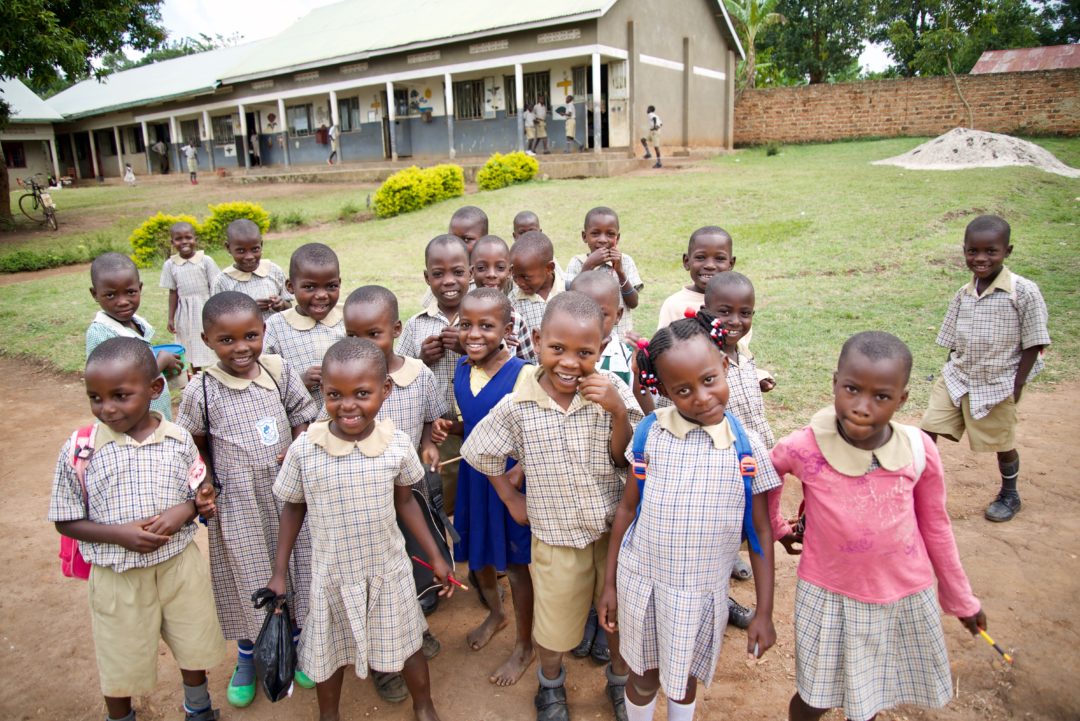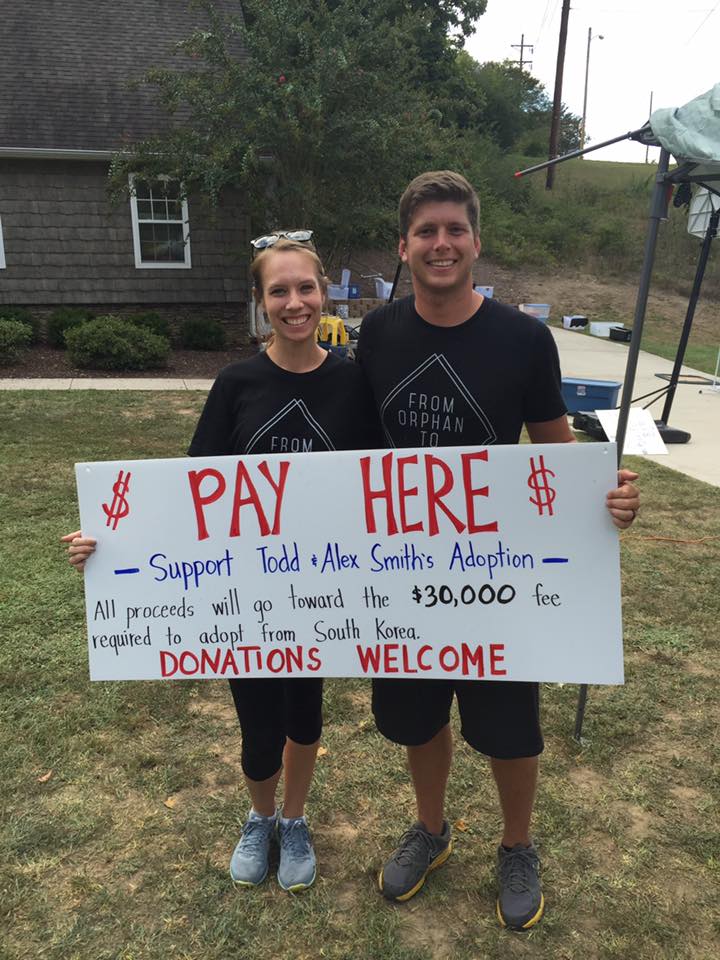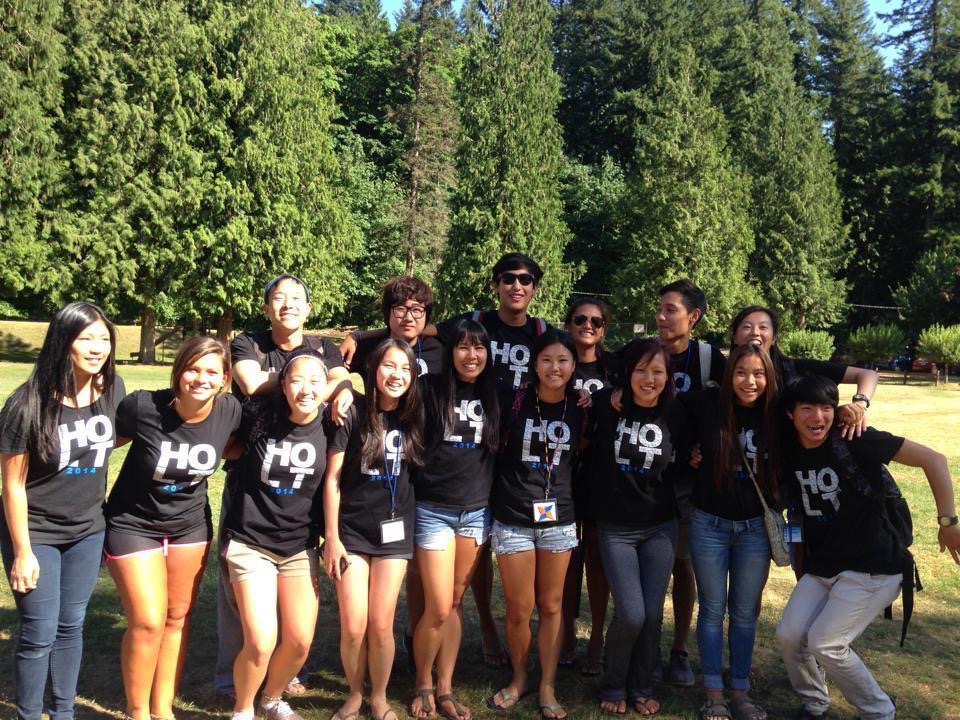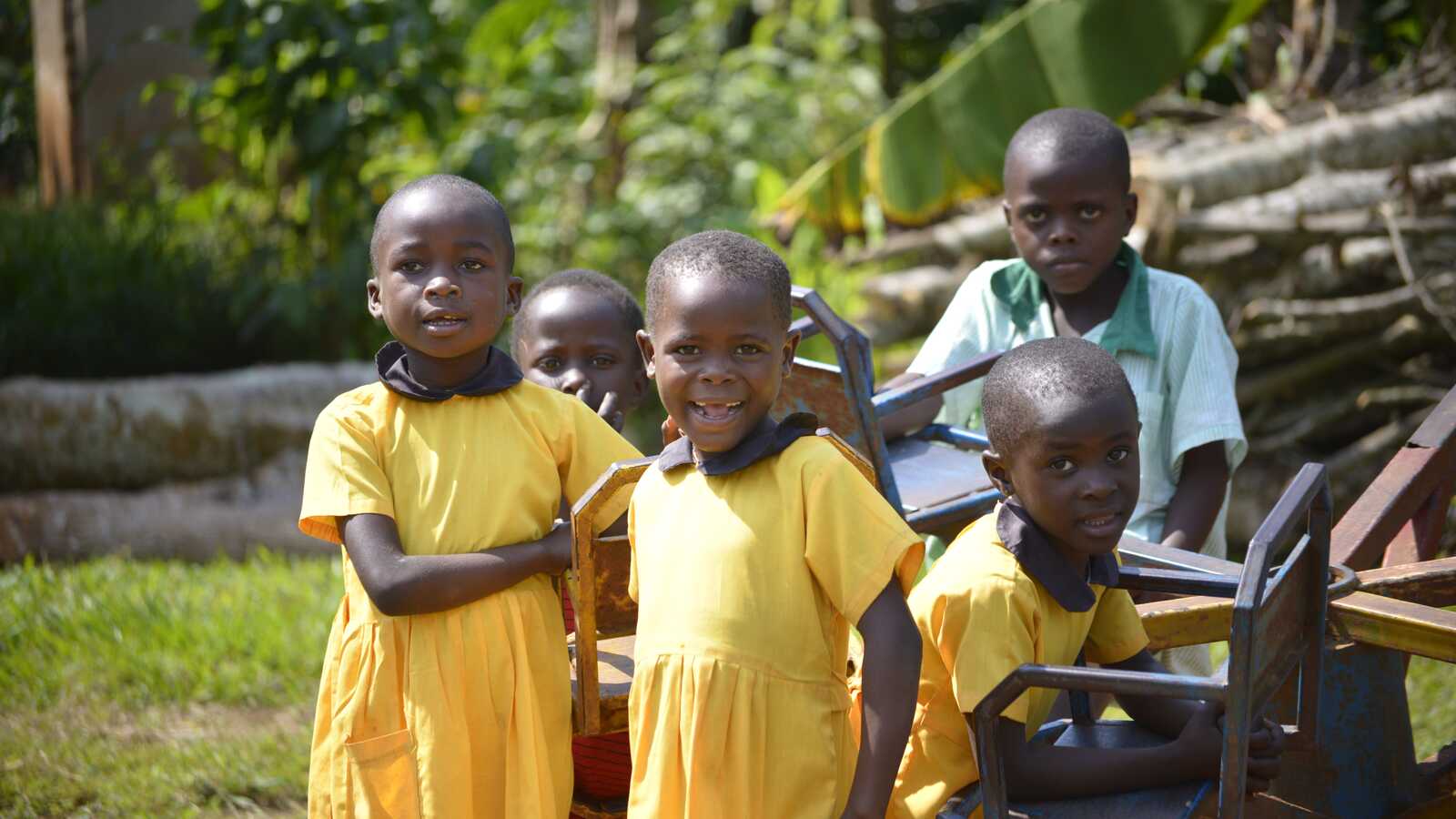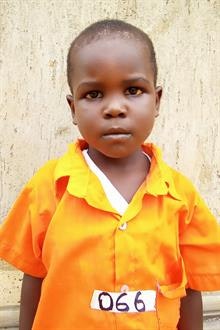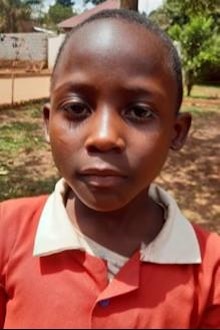In rural Uganda, sponsors are now helping children attend secondary school — the critical second half of their education that empowers them to rise above poverty, and to dream big.
Before, Edith might have gotten married. When she graduated primary school last year at age 13 — her education finished — she might have started to run her own household, possibly becoming a mother as a young teenager.
And Raymond? He might have moved to Kampala. As a 12-year-old in Uganda’s largest city, he might have found a manual labor job or started working for a wealthy family — anything to earn a living.
There’s no way to know exactly where Edith and Raymond would have ended up. But of one thing we can be certain — they would not still be in school. Thrown into adult life, without a full education, the cycle of poverty would have continued for them and their families.
Today, Edith and Raymond are going to school. And it’s all because of their Holt sponsors.
In the rural community of Masulita, about 20 miles outside of Kampala, poverty is widespread. And when a family struggles to get by, education is one of the first things to go. Because education is expensive. Especially for large families — common in this community in Uganda. Here, many parents struggle to provide school fees, uniforms and school supplies for all of their children.
For over twelve years, Holt sponsors have helped nearly 300 children attend Jolly Children’s Academy in Masulita. At this primary school, they learn reading, writing, math, agricultural science, how to build healthy friendships and more. At Jolly, they receive the educational and developmental foundation that sets them up for success.

Send a Child to School
The gift of a scholarship covers tuition for one student to go to school for one year.
In addition to educational support, the families of children at Jolly Children’s Academy are part of a program that empowers them to start a small business, and to independently provide for their families — hopefully, to be successful enough to send their children to secondary school. But parents still struggled to pay secondary school education for their children. And not every child graduated.
“Many children drop out because their parents can’t afford to pay tuition for secondary school,” says Lydia Nyesigomwe, Holt’s long-time country representative in Uganda. “Secondary education is much more expensive than primary education.”
“Many children drop out because their parents can’t afford to pay tuition for secondary school.”
Lydia Nyesigomwe, Holt’s representative in Uganda
And because so many families can’t afford secondary education, in some communities, parents will accept marriage proposals for their daughters at early ages. “Most children finish primary school by 15, so by 16 they are married off,” Lydia says. “Families believe they are safer in marriage, but actually, they are not.”
Even if they don’t get married, many girls and boys are sent to the city to find work. Disconnected from their families and communities, and with few options for work, many find employment as domestic help for wealthy families — making them vulnerable to all sorts of maltreatment. Stuck in an impoverished urban environment — without the skills and education needed to find a well-paying job — escaping poverty is unlikely.
This is why secondary education in Uganda is so important.
Edith is the oldest of seven children, and Raymond the oldest of eight. After they graduated primary school, they didn’t expect to go to secondary school.
“Would your parents have been able to pay your school fees for secondary school?” Danielle Peebles, Holt’s Africa program manager, asked them during her visit to Uganda this past spring.
“No,” Edith answered. “For my parents, they could not manage. It’s a lot of money.”
Raymond had a similar answer: “Also my parents could not manage to pay school fees for secondary. Because, for us at home, we are many. I have one sister in secondary and some still in primary. They pay a lot of money.”
That’s why, last year, Holt began a secondary education program for children in Uganda – children like Edith and Raymond. Now, sponsors can continue supporting their sponsored child until they complete their secondary school education.
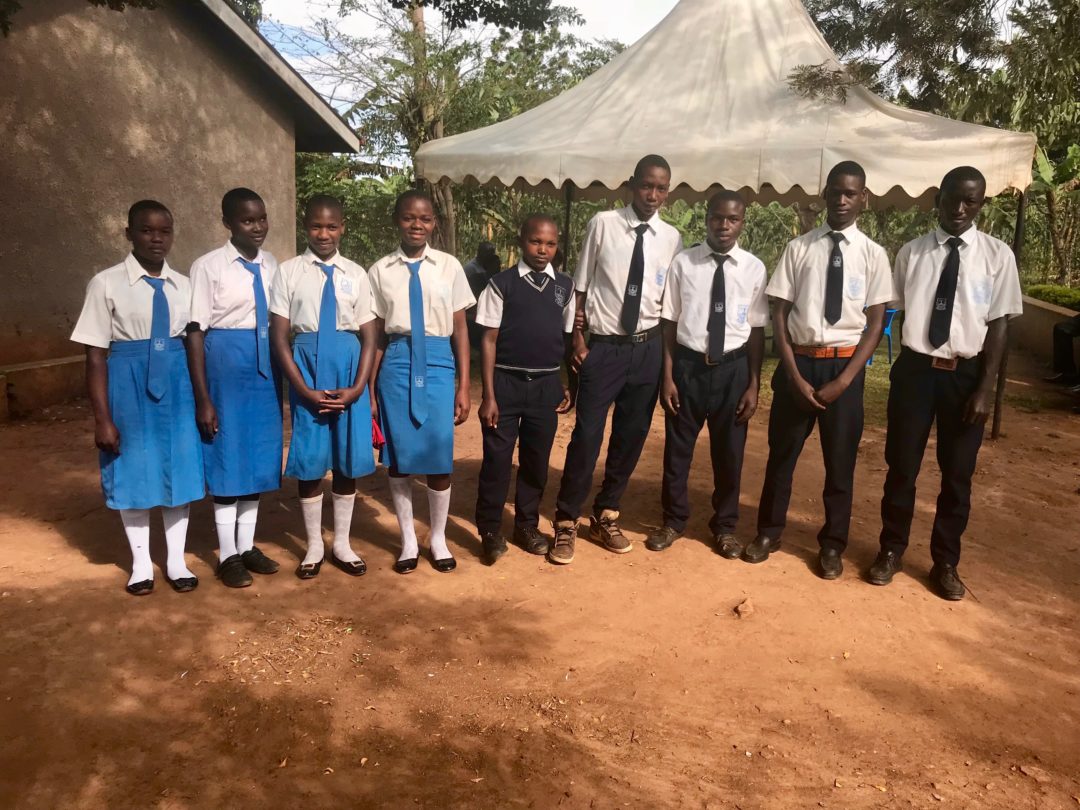
Last year, nine sponsored children continued on to secondary school, and soon, the program will double — providing twenty scholarships to children who would otherwise not continue their education.
Edith and Raymond understand the opportunity they have been given, and they are grateful for the continued support of their sponsors — the generous people across the world who give them the educational and daily living essentials they need.
“Sponsorship has helped me in paying my school fees, giving me bedsheets, schoolbags, pens and books,” Raymond says. His favorite subject is math, and he also loves reading books.
“Sponsorship has helped me in paying my school fees, giving me bedsheets, schoolbags, pens and books.”
Raymond, the oldest of eight children
In primary school, Edith’s favorite subject was social studies, but now that she’s in secondary school, history is her favorite.
They both do very well in school, and are exceptionally committed. Edith walks one hour both ways to get to school. Raymond walks two hours each way.
“What is most profound to me,” says Danielle, “is that they are now able to dream.”
Edith says she wants to be a lawyer. She wants to uphold justice for those who break the law. Raymond wants to be a mechanical engineer. He knows that with a job like this, he could easily support his family someday.
Although very few people hold these sorts of jobs in their rural community, Danielle feels hopeful for Edith and Raymond, encouraged by their impressive aspirations.
“Despite their surroundings,” she says, “they want to achieve big things.”
And because of the commitment of their sponsors — people like you who understand what going to school will both protect them from and empower them for — their big dreams are possible.
After graduating secondary school in a few years, Edith could get a scholarship to go on to law school. She could work to bring justice and order to her community. And Raymond could go to the university to become an engineer. He’ll build safer infrastructure in his community and provide for his family. Both of them will end the cycle of poverty for themselves and their families. Because of their big dreams, and the support of their sponsors, their lives will never be the same.
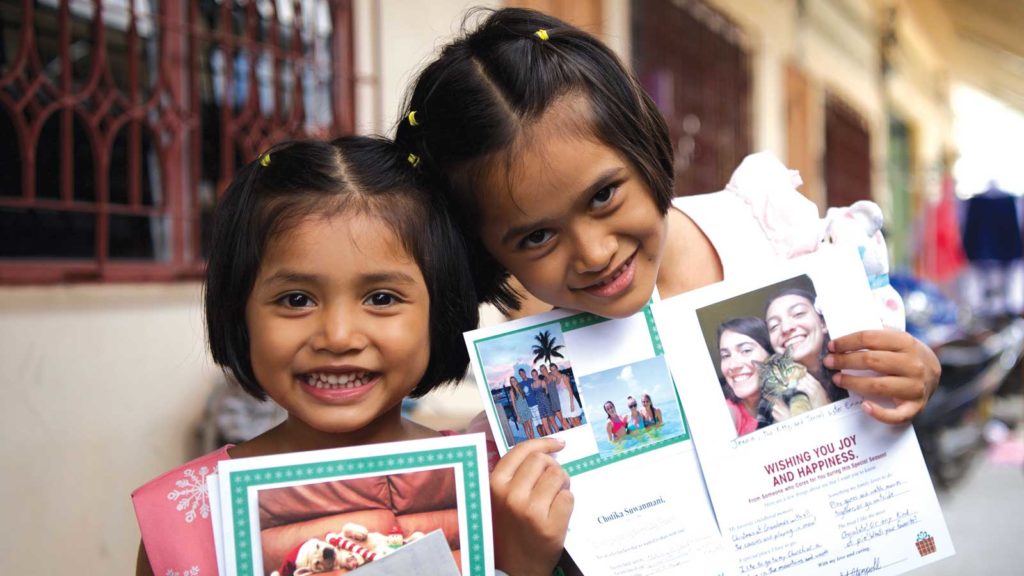
Become a Child Sponsor
Connect with a child. Provide for their needs. Share your heart for $43 per month.
